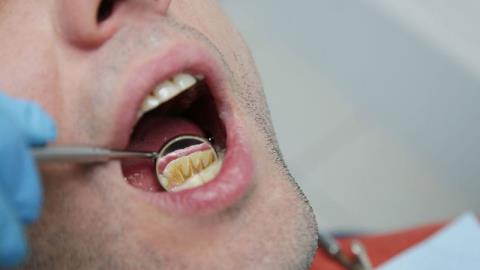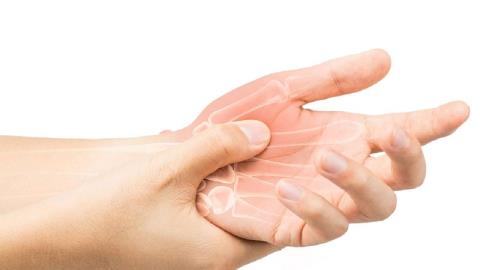In the media such as social networks or newspapers, propaganda about the possible ways of HIV infection or HIV is a virus that causes immunodeficiency. But to be able to detect signs of infection or even signs of HIV infection after 1 year, 2 years, most people do not know about them.
HIV is a human immunodeficiency virus that invades the body's immune system. Gradually replacing and even destroying cells with immune functions such as white blood cells, platelets, T lymphocytes, eventually causing acquired immunodeficiency syndrome (AIDS ) . However, signs of HIV infection after 1 year have begun to appear? So let's learn more about the HIV virus with SignsSymptomsList.
How does HIV affect the body?
The HIV virus attacks various types of immune system cells in the body. It is called TCD4 cell, which is responsible for mobilizing other immune cells to perform phagocytosis to destroy bacteria. So when HIV destroys these cells, the body becomes less able to fight off different types of infections.
If HIV is left untreated, even a mild infection like a cold, dermatitis or allergies can become much more serious. Because the immune system has been severely damaged at this time, the body will have difficulty responding to these acquired infections.
With intensive studies showing that HIV not only attacks TCD4 cells, but also uses these cells to help them make more virus. HIV destroys CD4 T cells by using their replication machinery to make new copies of the virus and then disrupting the cell membrane releasing the virus. This causes the TCD4 cells to become infiltrated and then rupture leading to cell destruction.
 The HIV virus attacks CD4 T cells and continues to multiply within the cell
The HIV virus attacks CD4 T cells and continues to multiply within the cell
When the HIV virus destroys a certain number of TCD4 cells and causes the TCD4 count to drop below 200, the patient will progress to the AIDS stage with a mortality rate of up to 80%. Now with the development of modern medicine, there have been advances in HIV treatment that have helped many people living with HIV live longer, healthier lives. However, there is still no drug - a process to completely destroy the HIV virus, but there are treatments that help to inhibit HIV replication in the body, which also bring practical benefits in treatment.
Stages of HIV disease progression
HIV is classified into three stages: acute HIV, chronic HIV, and AIDS.
Because HIV does not always multiply rapidly, many people are infected with HIV without knowing they have been infected because the symptoms that HIV causes are not so typical. Without early detection and treatment, it can take years for signs of immune dysfunction and other infections to appear. Because then the immune system of a patient is affected and clearly shows signs of body immune dysfunction.
Even without symptoms, the HIV virus can survive in the body and can still be passed on to others. If the patient is fully treated with measures that inhibit the ability of the virus to multiply, it will contribute to preventing the progression of HIV and AIDS. And more importantly, it can help the damaged immune system to gradually recover.
Stage 1: Acute HIV infection
During this stage, HIV symptoms usually begin to develop within 2 to 4 weeks of being infected with the HIV virus. However, there are some people who do not show any symptoms after they become infected with HIV. The symptoms are similar to those of a common cold or flu, so it is difficult to distinguish them from those of a respiratory infection. Flu-like symptoms may include:
- Fever.
- Chills.
- Allergic rash, rash.
- Sweating at night.
- Pain, muscle fatigue.
- Sore throat.
- Tired.
- Swollen lymph nodes .
Stage 2: Chronic HIV infection
This is a latent stage of HIV, where the virus becomes less active even though it is still in the body. Patients show no symptoms while the HIV virus progresses at very low levels inside the body. The absence of these characteristic signs lasts 10 to 15 years. Therefore, if not detected early for timely treatment, HIV can progress to stage 3 even if there are no symptoms.
 Feeling tired or having no symptoms
Feeling tired or having no symptoms
Stage 3: AIDS stage
It is the final stage of HIV. At this stage, the patient's immune system has been severely damaged, making it easier for the body to be attacked by other microorganisms that cause opportunistic infections. Symptoms associated with an infection that can become very obvious include:
- Lose weight quickly.
- Sweat a lot at night.
- Fever occurs continuously.
- Extreme fatigue.
- Swollen lymph nodes in the armpit, groin, and neck.
- Sores in the mouth, anus and genitals.
- Symptoms of pneumonia include cough with phlegm and difficulty breathing.
- Red, pink, or purple spots appear on or under the lining of the body.
- Memory impairment and other neurological disorders.
What are the signs of HIV infection after 1 year?
Through the stages of HIV as mentioned above, most patients with HIV disease will not show obvious signs of HIV infection after 1 year. Because the patient has progressed to the second stage of HIV latent (chronic HIV).
In addition, once you have HIV, you can infect others at any stage. HIV is transmitted through contact with body fluids containing the virus, such as blood, semen, vaginal fluids, and breast milk. However, the ability of HIV to progress depends on many different factors, so each patient will have a different duration of the disease.
 Symptoms and signs of HIV infection after 1 year are often confused with weather changes
Symptoms and signs of HIV infection after 1 year are often confused with weather changes
Factors that influence disease progression
The most important factor influencing HIV progression is its ability to suppress viral replication and at the same time be unaffected by other immunosuppressive factors. Therefore, regular use of antiretroviral therapy helps many patients slow the progression of HIV.
By implementing health-promoting factors such as eating a well-balanced, nutritious diet, exercising regularly and having an optimistic mind, it also reduces the progression of the disease. Because many factors influence the progression of HIV, some people progress through the stages of HIV faster than others.
Factors that influence the progression of HIV include:
- Currently implementing treatment with antiretroviral drugs to slow the progression of HIV is the easiest way. However, to control the viral content in the body, often HIV-infected patients have to undergo much more complicated treatment regimens.
- Age when infected with HIV: The older the patient, the faster the HIV progression is because the immune system has weakened somewhat and is no longer as good as before.
- Having other underlying medical conditions: If a patient has other medical conditions, such as tuberculosis, hepatitis C, this will affect their overall health much more than other HIV-infected patients
- Timing of HIV infection: Early detection of HIV is an important factor. Patients infected with HIV are diagnosed and treated as early as possible. Patients with HIV have more chances and a higher survival rate.
- Lifestyle: An unhealthy lifestyle, such as poor diet and severe stress, can accelerate HIV progression.
- Genetics: Intensive studies have shown that a small number of patients seem to progress rapidly due to their genetic makeup.
Factors that delay or prevent progression of HIV include:
- Take antiviral drugs and other therapies in combination.
- Periodic health check-up as recommended by doctors every 6 months.
- Stop using stimulants such as tobacco and alcohol to live the healthiest lifestyle.
- Understanding HIV transmission routes is also a way to prevent HIV transmission.
 HIV-infected patients treat the disease by using antiretroviral drugs
HIV-infected patients treat the disease by using antiretroviral drugs
Through the article on SignsSymptomsList, readers need to know about the symptoms and signs of HIV infection after 1 year and how HIV progresses. Implementing a healthy lifestyle is always a way for you to have excellent health to fully enjoy your own colorful life.

 The HIV virus attacks CD4 T cells and continues to multiply within the cell
The HIV virus attacks CD4 T cells and continues to multiply within the cell Feeling tired or having no symptoms
Feeling tired or having no symptoms Symptoms and signs of HIV infection after 1 year are often confused with weather changes
Symptoms and signs of HIV infection after 1 year are often confused with weather changes HIV-infected patients treat the disease by using antiretroviral drugs
HIV-infected patients treat the disease by using antiretroviral drugs





